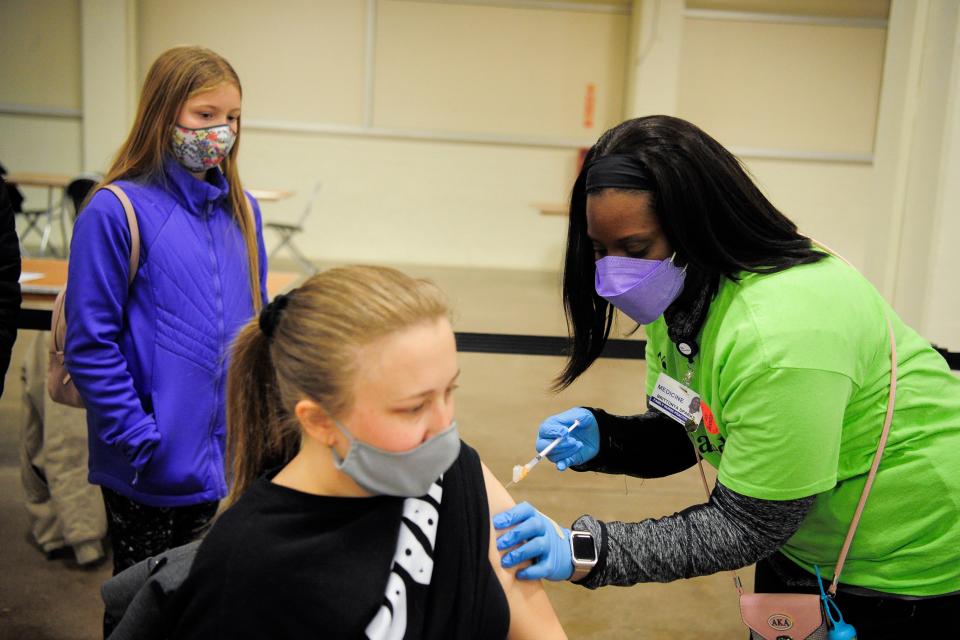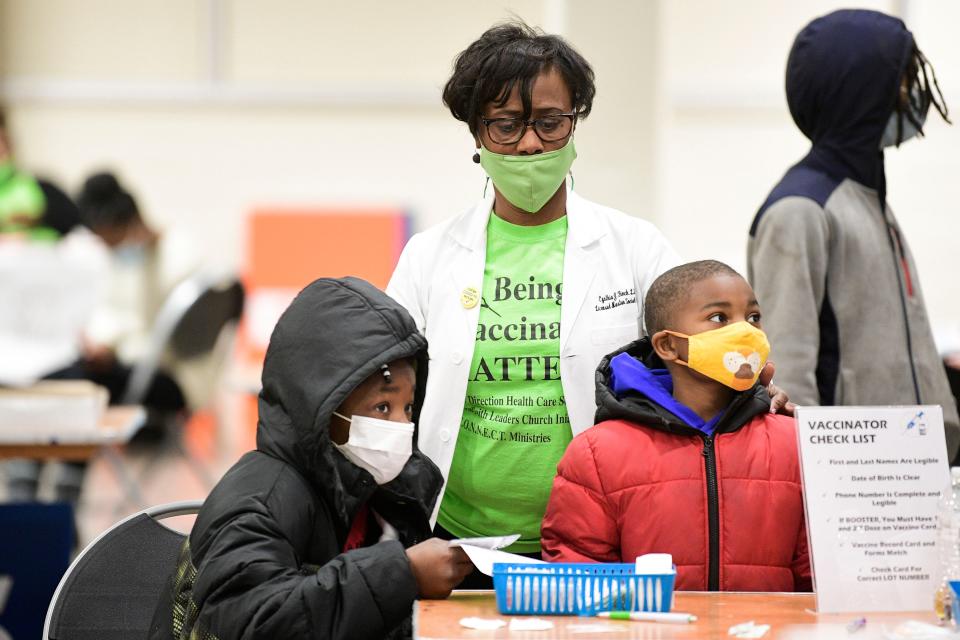Omicron variant surges through Knox County at unprecedented rate
The omicron variant has hit Knox County hard, bringing with it record case counts at a startling speed.
Knox County detected a record 1,002 new cases of COVID-19 on Friday, far surpassing any other daily totals during the pandemic. The previous record, 933 new cases, was set at the height of the delta wave in September.
The test positivity rate, the number of active cases and the number of probable cases have also shot up.
COVID-19 IN KNOX COUNTY: Knox County COVID-19 case counts and vaccine numbers
GETTING VACCINATED: Need to get your family vaccinated? Here's a fun way to do it in Knoxville
In the last week, active case counts have almost tripled from roughly 2,200 to more than 6,400. The weekly new case average more than quadrupled from roughly 100 cases a day to over 450.
This wave is only now being felt by area hospitals. Hospital occupancy rates are still below the peak of September's delta surge. About 570 patients were hospitalized as of Friday with COVID-19, and 94% of adult hospital beds were occupied across the 11-county Knoxville Hospital District.

Omicron was first detected in Knox County in mid-December. Since then, the seven-day average increased by more than 700%.
New mutations, new variant
Omicron is highly transmissible and more prone to breakthrough infections than previous variants, scientists say.
In lab studies, Omicron avoids some antibodies produced in response to prior infection and vaccination.
It has also evaded some monoclonal antibodies used in COVID-19 treatments, so people receiving that treatment for the omicron variant may need to receive much higher concentrations to see the same results.
That's likely due to omicron’s high number of mutations. Scientists think that omicron's more than 50 mutations, 30 of which are on the spike protein used to attach to and infect cells, give it the ability to infect cells more readily while evading some antibodies.
"If there are mutations in the spike protein in those areas where antibodies bind they may bind less avidly ... or they might not bind at all," said Dr. Jon McCullers, pediatrician-in-chief at Le Bonheur Children's Hospital in Memphis. "And that may be why more people are getting more infected now ... why it's able to reinfect people or infect vaccinated people."

These mutations may also give omicron a preference for upper respiratory infections and faster replication. Animal and human cell culture studies have shown that omicron is more dependent on upper respiratory cells and did not readily infect the lower lung.
"There have been some data that suggest it attaches better in the upper airway," said McCullers. "So maybe it gets out from the upper airway more easily than it does for the lungs."
McCullers cautioned that scientists haven't had enough time to evaluate the effect of each mutation in the short months since omicron was detected.
"We don't have a knowledge of this change in the virus that allows it to transmit more," said McCullers. "We can just observe it right now."
Evidence of reduced severity
Omicron's tendency to infect upper airway cells may make it less able to cause severe pneumonia and death. A recent study comparing 14,000 omicron cases to delta cases in similar patients found that delta caused more severe infection even in patients with co-morbidities.
"For all the cases we examined, the risk for mechanical ventilation is only one-sixth that we saw for the delta variant," said professor Rong Xu, a professor of biomedical informatics at Case Western University and study author.
Her study saw an overall reduced risk of emergency room visits, ICU admission and hospitalization across all age groups.
Xu said this doesn't mean omicron is harmless. Because the variant is so new, her study didn't include the risk of long COVID-19.

"Low risk is not zero," said Xu. "We still need to be cautious for those with medical conditions."
And since omicron is much more transmissible than previous variants, it is more likely to reach vulnerable people.
The best way to prevent infection, experts say, is still vaccination. Omicron can evade some antibodies, but not the full compliment of a body's immune response.
"There is absolutely immutable evidence that vaccination will protect you from the worst outcomes," McCullers said. "Preferably also with a booster."
This article originally appeared on Knoxville News Sentinel: COVID-19 omicron variant surges unprecedented rate Knox County

